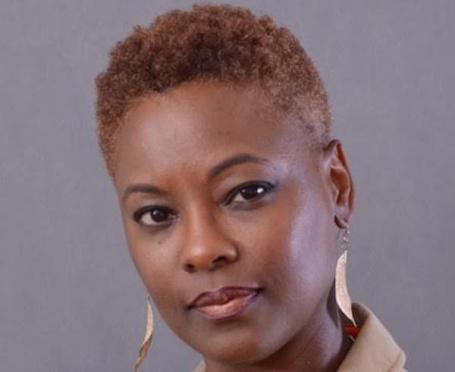|
MAKING HISTORY can often come with a lot of pressure. But for Samantha Tross - the first black female orthopaedic surgeon in the UK - she takes it all in her stride. “While I’m proud of being the first black female orthopedic surgeon in the UK, I know it comes with a lot of responsibility because how I conduct myself will have an impact on those coming after me,” she says. “It’s my job to do my best so that those coming after to me have it easier.” Samantha Tross was was born in Georgetown, Guyana on June 30, 1968 to Sammy and Gwendolin Tross. The second of four children, she went to St. Gabriel’s Primary School before her father was assigned to England and the family relocated. It during this time that she first developed her interest in medicine and pursuing a career in this field.
“As a child I developed an interest in medicine. It’s difficult to say where that interest arose from but I remember my grandparents lived with us and died whilst at home and as a result, I experienced death at young age,” recalls Tross. “I think that must’ve had an impact. At age 7, I expressed to my parents that I wanted to be a doctor and thats my first memories of my interest in this field.” This interest in medicine developed more and more as Tross got older, as she eventually graduated from University College London in 1992, before pursuing a career in Surgery. At that time, her interest in medicine ranged from cardiology to psychology, but it was orthopaedics - a medical specialty that focuses on injuries and diseases of your body's musculoskeletal system - that really took her fancy. “When I was at medical school, I was exposed to many medical specialties, but when I did orthopedics, the surgeons were very encouraging and I liked that,” says Tross. “When you’re a student and around people with a busy work schedule, sometimes you can feel as though you’re getting in the way. But these surgeons really made me feel part of the team and useful. “Also the first female surgeon I ever saw was an orthopedic surgeon and the specialty itself was fun. You see the benefits of your work very quickly.” Tross’ surgical training was obtained at a number of London hospitals including The Royal London and Guy's & St Thomas's hospitals. These experiences would eventually lead her to becoming the first black female orthopedic surgeon in the UK in 2005. “History was made in 2005 when I became the first black female orthopedic surgeon in the UK. It's always still a shock to me to hear ‘you’re the first person to do this’ or ‘the first person to do that’ because it's something that’s been a part of my work and should be the norm,” states Tross. While this milestone is a notable one, Tross notes the need for a diverse workforce and the benefits of industries representing those from different backgrounds. “It helps if there’s someone you can relate to who understands some of the things you’re going through. “Now that’s not to say one can't do it without that, as when I did there were no black females, but as a result there were times where I felt particularly lonely and assumed perhaps that people may not understand the struggles I was going through,” she reveals. “When you have someone you can turn to for support, it makes it a lot easier.” “However, I do feel the orthopedic industry is becoming more inclusive,” says an optimistic Tross. “There are now - to my knowledge - four black female orthopedic consultants in this country, so things have improved. I’m seeing more trainees and I expect there to be many more in the future – especially many more women. Diversity isn’t expanding as quickly as I’d like but it’s definitely improving.” And Tross isn’t wrong about the slow pace of diversity in the industry. Only 11% of consultant surgeons in Britain are female, but the Guyanese professional notes the importance of visibility in aiding in this expansion of diversity, saying that we “need to make people aware of this career choice so that it’s something they would then think of as an option.” For the 50-year-old, who was named one of the 100 Greatest Black Britons, no day is the same. If she’s not attending to trauma patients with broken bones or conducting clinics to monitor the progress of her patients, she’s teaching students, attending meetings and bringing more awareness to her profession. This variety is in part why Tross gets so much enjoyment from her job - and she encourages other women of colour to do the same. “Don’t be afraid to follow your dreams, be realistic in your choice and take time to know yourself,” she says. “Also choose a profession that’s suitable to your personality, get yourself a mentor and don’t be afraid of setbacks because that is part of the journey.” Samantha Tross–Consultant Orthopaedic Surgeon at The Princess Grace Hospital, part of HCA Healthcare UK (hcahealthcare.co.uk) Source : The Voice, 22/11/2018 |
Archives
May 2022
Categories |


 RSS Feed
RSS Feed